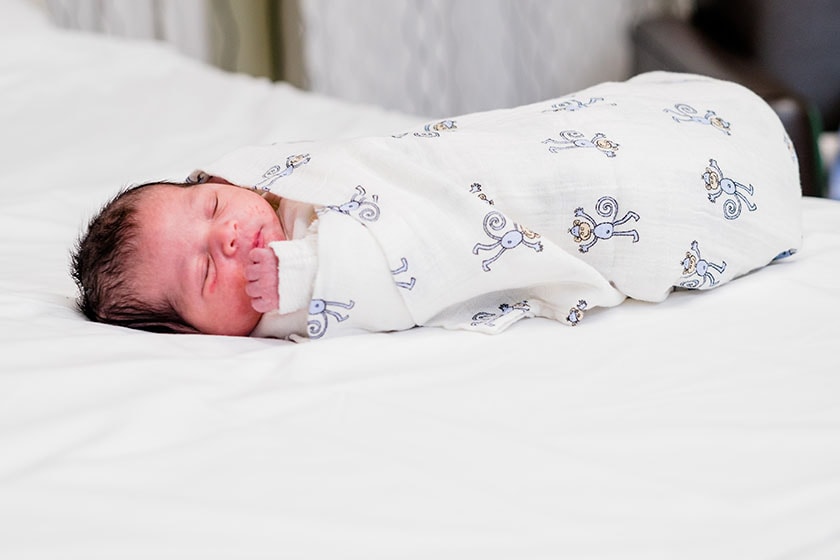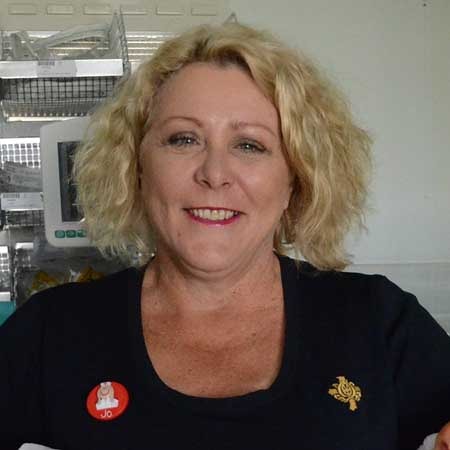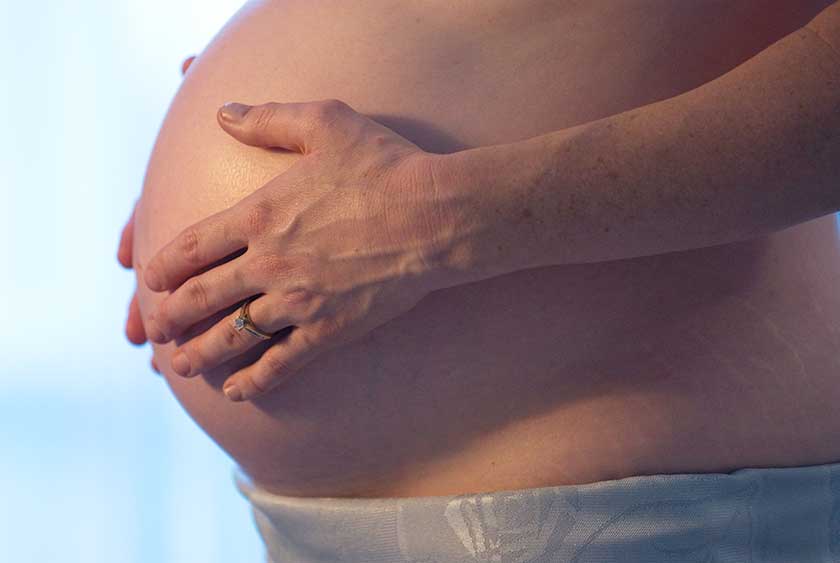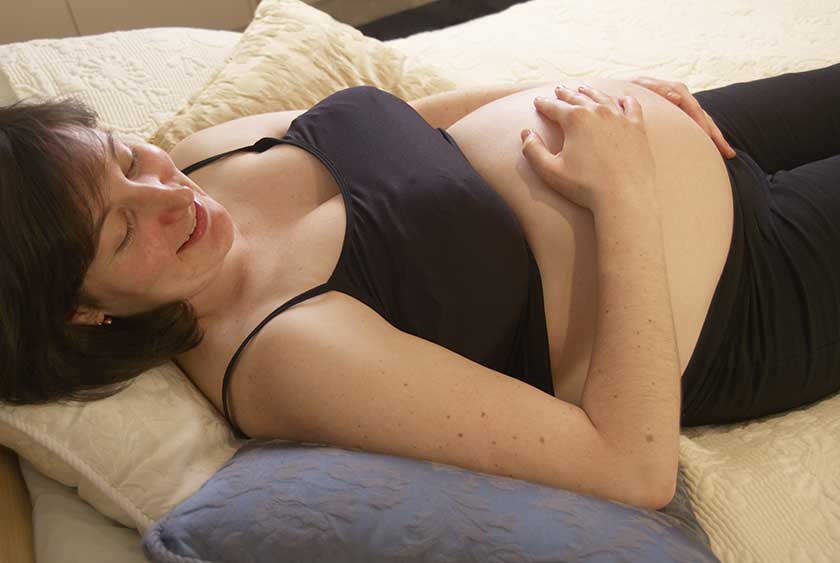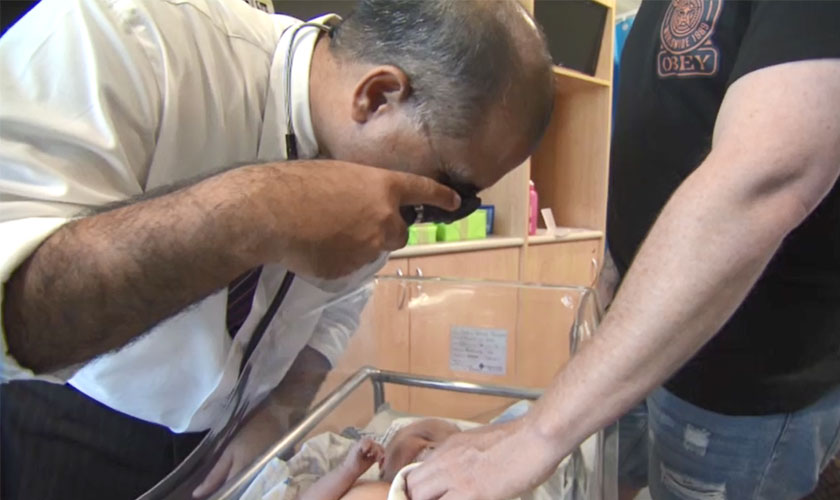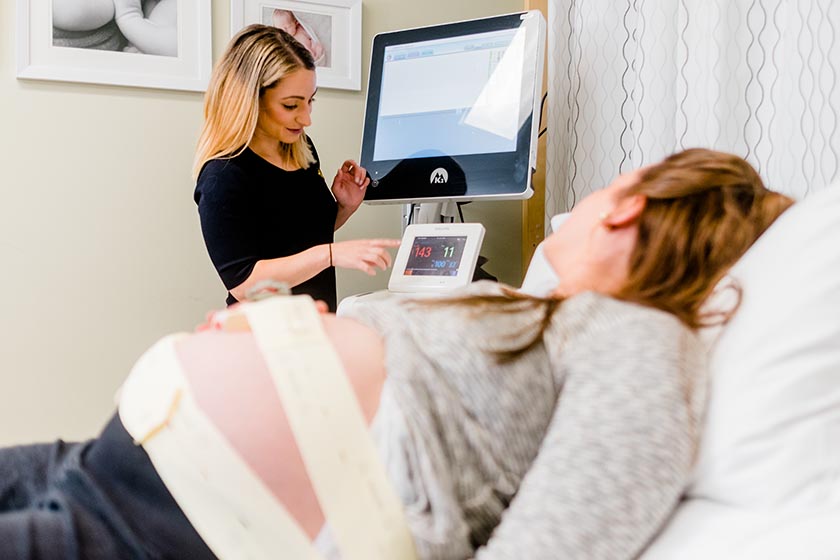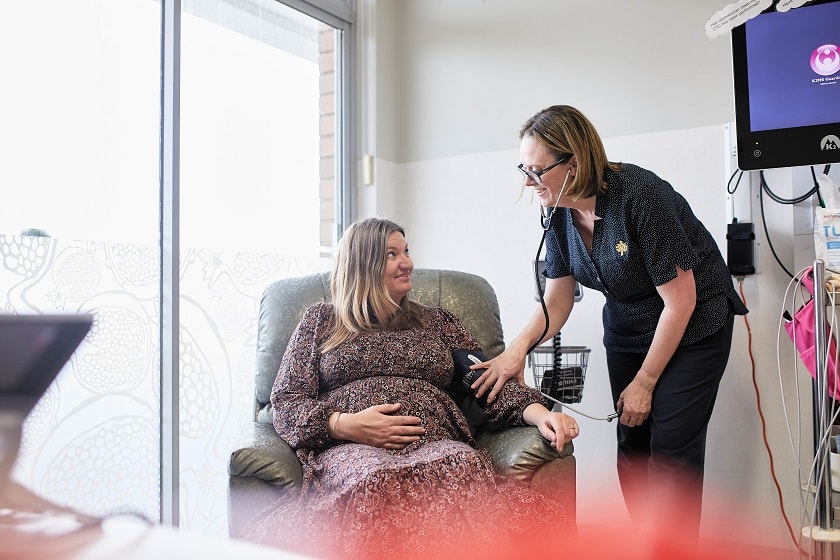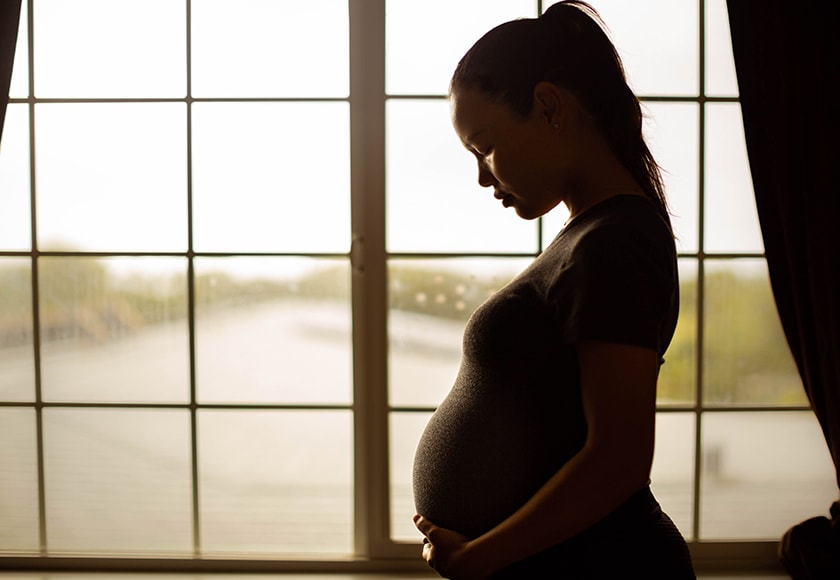After being welcomed into the world your baby will need to undergo various tests to check their health and to identify any issues that may need attention.
Doing these tests as early as possible means any potential concerns can be addressed rapidly.
What tests you can expect
Oxygen levels (oximetry)
All babies have their oxygen levels screened during routine neonatal observations soon after birth to monitor and help them transition to life after birth. These levels are then checked prior to discharge.
The test to do this, called oximetry, involves placing sensors on your baby’s skin. It is painless and only takes a few minutes.
The test may detect critical congenital heart abnormalities and other anomalies that may be present.
Newborn screening test
The newborn screening test (also known as the Guthrie test) is conducted on all babies born in Australia and has been offered as part of routine screening for more than 40 years. It detects a range of conditions including metabolic disorders and cystic fibrosis, which can benefit from early intervention.
The test is conducted when you baby is between 48 and 72 hours old, and involves pricking your baby’s heel and putting a few drops of their blood on filter paper for analysis. Some babies do cry, but don’t worry, the discomfort doesn’t last long.
No news is good news and you are only notified of the result if further action is required.
Hearing screening
A hearing screening test is usually conducted on babies while in hospital. although it can be done after your baby has left hospital. Your midwife will organise an outpatient appointment for your baby to have their hearing screen if required.
The test involves placing earphone cups over your baby’s ears and measuring their response to soft clicking sounds which come from the earphones. Leads measure you’re the response for your baby’s ears.
Whenever your baby is tested, we explain what is involved and why we are testing your baby. We obtain your consent prior to performing any testing on your baby.
For further information on these tests or how they are performed, please consult your doctor or midwife.

